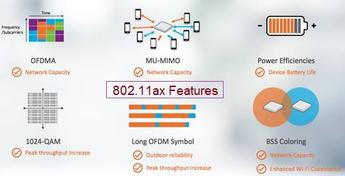HiFi vs WiFi: Understanding the Key Differences
Advertisement
This page clarifies the distinction between HiFi (High Fidelity) and WiFi technologies. While the names sound similar, they relate to very different aspects of technology.
HiFi stands for High Fidelity, and WiFi stands for Wireless Fidelity.
What is HiFi?
HiFi refers to the high-quality reproduction of sound using specialized audio equipment. The goal is to produce audio with minimal noise, distortion, and an accurate frequency response. In essence, it means reproducing sound as faithfully as possible to the original recording.
Key Requirements for a HiFi System
- Speakers: High-quality speakers are crucial for reproducing sound accurately. They should be built with quality materials and enclosures that minimize resonance, mechanical noise, and interference.
- Amplifier: The amplifier should feature a high-quality power supply and use high-quality shielded cables and connectors.
- RF Interference Elimination: Hi-Fi system components like tape decks, amplifiers, and turntables can pick up Radio Frequency Interference (RFI). Techniques like earthing, filtering, and shielding are used to eliminate this interference and maintain audio quality.

HiFi vs WiFi: The Core Difference
- There is no direct relationship between the terms “HiFi” and “WiFi”.
- HiFi pertains to the transmission and reproduction of high-quality audio. This transmission can occur through various mediums, including fiber optic cables, USB connections, or wirelessly (including, but not limited to, using WiFi).
- WiFi is a specific technology relating to Wireless Local Area Network (WLAN) standards, such as IEEE 802.11a/b/g/n/ac/ad. In other words, WiFi is a method of wireless data transfer.
Applications of HiFi (High Fidelity)
HiFi technology finds applications in a wide range of audio and entertainment devices:
- TVs
- Speakers
- Smartphones
- Tablets
- Headphones
- Streaming Devices
- Portable devices (radios, etc.)
- Digital TV boxes
- Game consoles
- CD players
- Amplifiers
- Home-Cinema systems
Advertisement
 RF
RF

